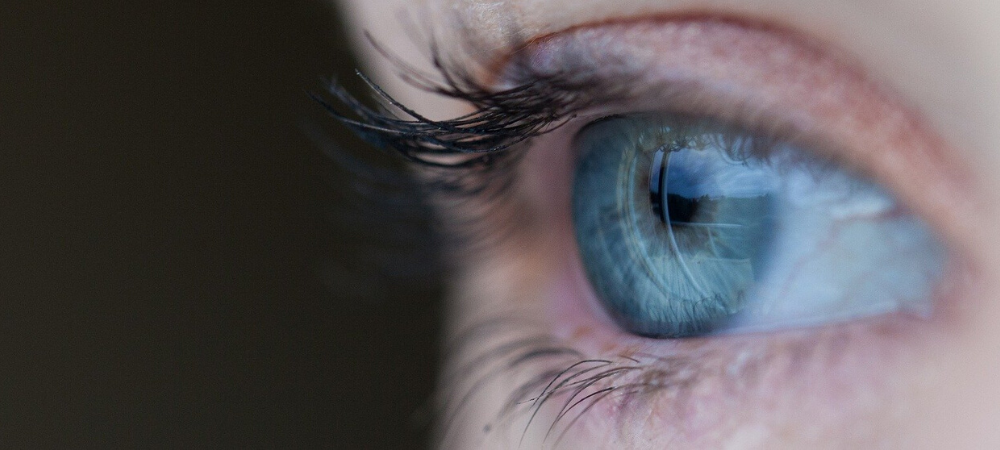If you have been recently diagnosed with keratoconus, you are not alone! Keratoconus is actually a common disorder that affects approximately 1 in 2000 individuals, or over 150,000 Americans.
Typically, keratoconus is first exhibited in adolescence or early adulthood between the ages of 10 and 25 and may progress through young adult life. In some cases the disease progresses quickly, but more often, it is characterized by slow, progressive changes. In its early stages, the effects of keratoconus can be counteracted with simple prescription glasses or contact lenses. As the condition advances, however, it is common for a patient to require a new prescription each time they visit their eye doctor.
Keratoconus occurs when the cornea— the transparent dome-like covering over the front of the eye — stretches, changes shape, and becomes thinner. Because this deformation disrupts the cornea’s ability to refract light properly, keratoconus sufferers often experience blurred vision, light sensitivity, and the perception of “glare” in vision. In severe cases, it can cause abrupt clouding and weakening of the vision, with the back of the cornea rupturing and filling up with fluid.
Learn about more ways keratoconus can affect your eyesight below!
1. Keratoconus is a Treatable Disease!
Though these symptoms may sound frightening, it is important to note that a keratoconus diagnosis does not doom you to blindness. A skilled corneal doctor will be more than able to provide you with the expertise and treatment to preserve your eyesight. Mild cases can almost always be treated with typical prescription lenses, and even more severe cases can be treated with minimally invasive procedures.
If you are diagnosed with keratoconus, it is critically important that you get the help of an experienced eye care provider as soon as possible. Early intervention is the key to proventing further progression and vision loss. Blindness is an incredibly rare outcome for individuals suffering from keratoconus, especially when treated by a skilled ophthalmologist and corneal surgeon.
2. Don’t Rub Your Eyes!
One of the simplest ways to slow or reduce the chances of progression of keratoconus and is to stop rubbing your eyes.
We feel the urge to rub our eyes for a number of reasons, the main one being that it stimulates the release of tears, providing near-immediate lubrication and relief from dry eyes and irritants. While this effect may sound positive— and of course, feel good—the long-term impact of rubbing your eyes can be incredibly damaging. The array of dangers posed by rubbing your eyes habitually are immense: ruptured blood vessels, scratching of the cornea, introducing germs into your eye, and thinning of the cornea, which is a big threat to keratoconus sufferers and non-sufferers alike.
If you have been diagnosed with keratoconus, it is absolutely imperative that you stop rubbing your eyes immediately, as continued stimulation can cause your condition to advance more drastically.
3. Corneal Crosslinking is the Only FDA Approved Treatment That Can Halt the Progression of Keratoconus
If you have been diagnosed with keratoconus and the condition is progressing, corneal crosslinking is a minimally invasive procedure that can halt the progression of the disease and prevent further deformation of the cornea.
During a corneal crosslinking procedure, the corneal tissue is strengthened by fortifying and increasing the “anchors” which hold collagen fibers together in the cornea, leading to a stronger cornea which is no longer prone to further stretching or thinning.
In the corneal crosslinking procedure, after application of anesthetic drops to keep the eye numb, FDA-approved drops are used every two minutes to saturate the corneal tissue with riboflavin. The eye is then exposed to a special ultraviolet light using the KXL system (FDA-approved for this treatment).
Contact Hill Vision Services
If you have been diagnosed with keratoconus in the St. Louis area, contact Hill Vision Services!
Our eye care center is part of the Avedro Center of Excellence network, the nation’s leading experts on corneal remodeling and keratoconus treatment. We are proud to offer comprehensive expert treatment for keratoconus, including the KXL system, which provides the most effective outcomes for patients.
While a keratoconus diagnosis may feel scary at first, the ophthalmologists at Hill Vision Services have the experience, knowledge, and skills to protect your eyesight.

